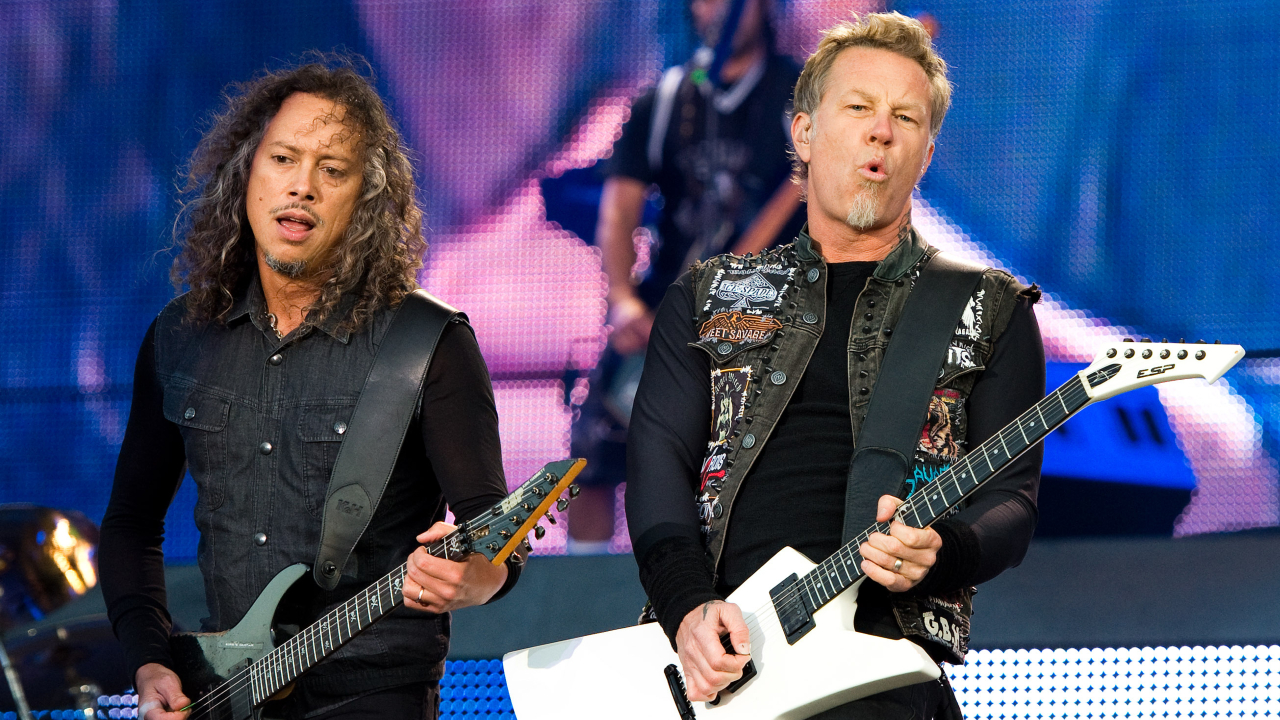
Countless metal bands have instrumental suites in their back-catalogues, but few are as famous for the format as Metallica. During their 80s heyday, the thrash metal kingpins fit one into each of their albums, and each one felt dextrous, heart-rending and sometimes even revolutionary. It’s a tradition the band have only touched a handful of times since, though the fact that they’re still regarded as the masters of vocal-free metal material says it all.
To celebrate Metallica’s talents at pulling away from the mic to let the music do the talking, Hammer’s ranked their every instrumental studio recording. From (Anesthesia) Pulling Teeth to Suicide & Redemption via everything in between, join us as we tour from the also-rans to the standard-bearers.

6. The Ecstasy Of Gold (Ennio Morricone cover; We All Love Ennio Morricone, 2007)
Be assured that we’re not talking about the original Ennio Morricone piece here, which soundtracked one of the greatest western films ever made and has opened Metallica’s gigs since 1983, nor the majestic live orchestral S&M reinterpretations. No, this is the terrible heavy metal cover, which the band recorded for a 2007 tribute album to the late composer. The intro sounds like the Four Horsemen were playing in boxing gloves, there’s wah pedal overkill and the less said about James Hetfield’s ‘Yeah-eh’ exhortations the better. It’s not good, but bad and ugly.
5. (Anesthesia) Pulling Teeth (Kill ’Em All, 1983)
As a solo that iconic bassist Cliff Burton brought with him to the band in 1982, (Anesthesia) Pulling Teeth’s history transcends Metallica. “Cliff had studied music,” guitarist Kirk Hammett told Metal Hammer years later. “He was at a more musical level than I was. There were concepts I didn’t understand, which he knew and explained to me.” The track showcases Burton’s ‘lead bass’ style, with howling notes and six-string-esque histrionics. It flaunts a great and sadly missed talent, but is still ultimately a bass solo, as opposed to a more textured instrumental composition.
4. Suicide & Redemption (Death Magnetic, 2008)
Metallica’s first original instrumental piece in 20 years is also the only one they’ve released this side of the millennium, but it still slaps. Robert Trujillo proves he’s no slouch on the bass during the pumping intro and, as the track twists and convolutes through numerous riffs and gear changes, every member gets multiple chances to shine. There are some great solos peppered throughout and, even as the longest cut on Death Magnetic at just shy of 10 minutes, Suicide & Redemption never quite outstays its welcome.
3. The Call Of Ktulu (Ride The Lightning, 1984)
Burton was once again, ahem, instrumental to the development of this track. He introduced the rest of the band to the writings of H.P. Lovecraft (which would also later influence The Thing That Should Not Be) and his bass-playing is prominent if never overwhelming. As well as some impressive technical chops, The Call Of Ktulu builds a suitably sinister atmosphere as it lurches towards its conclusion like an eldritch horror from the deep. The intro of the suite also features the last contribution Metallica would use from former guitarist Dave Mustaine.
2. To Live Is To Die (…And Justice For All, 1988)
The instrumental heart of …And Justice For All is just as long and involved as Suicide & Redemption, but feels more cohesive. While it’s equally as multifaceted, there’s a natural flow between the heavier parts and that lilting, emotive mid-section in particular. To Live Is To Die also serves as a tribute to Cliff Burton, who tragically died in a tour bus accident in 1986, aged just 24. It incorporated a number of his unused basslines (played by replacement Jason Newsted), plus sentences Burton had adapted from a Paul Gerhardt poem for the spoken-word segment. Some might argue that this section prevents the composition from being a “true” instrumental – however, we’d suggest it adds an understated eulogy to the otherwise unspoken sense of loss that imbues the rest of the track.
1. Orion (Master Of Puppets, 1986)
This list revolves quite heavily around Cliff Burton, of course, and Orion was the bassist’s magnum opus. Although an official collaboration between Burton, Hetfield and Lars Ulrich, this much-adored labyrinth of solos, stomping and riffing once again stemmed mainly from the vision of Metallica’s late, great maverick.
“Cliff came up with a very different-sounding piece to anything we’d done before,” Ulrich told Creem. “To me it sounded like a Swedish folk song! And we really liked listening to it and playing it, so we just based the whole song around that middle part.”
The subsequent masterpiece helped redefine what a metal bassist could sound like and remains an emotional link to Metallica’s past. Even on an album as stacked and spotless as Master Of Puppets, Orion is an undisputed standout: not just these legends’ finest instrumental, but arguably the greatest in their entire genre so far.







